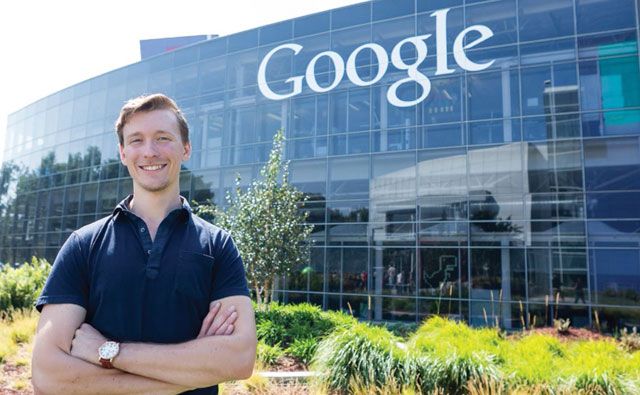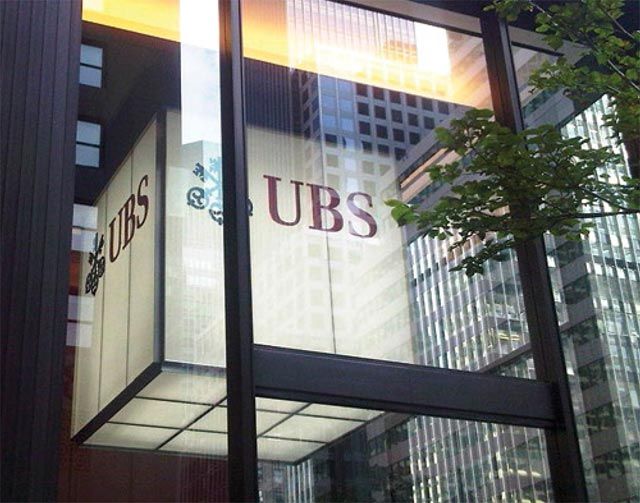In his job with the investment banking wing of UBS Financial Services, Alex Price ’14 wears the hats of emergency responder, forensic investigator and translator. His team monitors trades for problems, probes error files for fixes, explains situations to frustratedtraders, and works with software developers to patch bugs.
“We are the firefighters of Wall Street,” Price says.
Price learned to speak the languages of computer scientists and business leaders in Lehigh’s Computer Science and Business program. CSB, the only program of its kind accredited in both disciplines, teaches students how technology interfaces with all areas of business.
“CSB is for students who want to make technology happen, not just cope with it,” says program co-director Hank Korth, the Weisman Professor of Computer Science and Engineering. “We’re giving them the tools to master the next big thing to come along—or create it.”
“There is no other program like CSB in the country,” says its co-founder, James A. Hall, the Peter E. Bennett ’63 Chair in Business and Economics. CSB was launched in 2000 with help from Bennett, chairman of New York private equity firm Liberty Partners, who provided a $2.4 million grant. The tech bubble was collapsing and computer science enrollments were down, but Hall and others saw a need for integrated education.
“It was really obvious to me that many IT people didn’t have a clue about business concerns, and many business people abdicated any responsibility for technology,” says Hall, a former systems analyst. “There was a need [for a program like CSB] for decades, but it had never been satisfied because universities are structured with silos in business and engineering.
“At Lehigh, we don’t have silos. This kind of interdisciplinary program is our niche.”
The decision to create CSB was prescient. In 2002, Congress passed the Sarbanes-Oxley Act in reaction to corporate accounting scandals. Sarbox required top management to personally certify financial controls and results and, says Hall, “created a great demand for people with deep skills in business and technology.”
CSB began with 11 transfer students. Twenty freshmen entered in 2002 and by 2014, there were 173 majors. The class of 2019 has a bumper crop of 57 freshmen selected from 368 applications.
In addition to rigorous coursework, CSB requires students to complete a two-semester senior capstone project in which they work with a business or IT company to solve real-world problems.
CSB grads are highly sought by major financial services and consulting firms and by tech giants such as Google and Microsoft. The Class of 2014’s CSB graduates averaged a mean starting salary of $81,750, compared to $70,262 for computer science grads and $60,200 for business information systems majors.
CSB alumni see a natural fit between the program’s two disciplines. “There is a symbiotic relationship between computer science, which is heavily mathematical and logical, and which depends on rules and logic but is much more about relationships with customers, colleagues and competitors,” says Spencer Johnson ’13, who now helps Google fight clickfraud while ensuring that users see relevant ads.
“CSB combines two fields that, in my opinion, are inseparable,” says Basilio Garcia Castillo, a junior from Spain. “I have been interested in computer science since I was a kid. However, I also like working with people, organizing events and understanding the environment that I am working or studying in.”
Wellesley “Wes” Arreza ’16 is working with a team to develop a web application for the advisers and clients of a $600-billion wealth management firm. CSB, he says, “gives you the opportunity to network with employers and get hands-on learning in industry technologies.
“In today’s industry, knowing theoretical computer science and a couple of APIs is not enough. To create valuable software, you have to think about the business side.”
“CSB gives you the best of both worlds,” says Alex Ratner ’14, who worked with classmate Tyler Costantino ’14 (a management major) to develop Rally, an app that connects friends and their nightlife experiences.
“Facebook and Twitter become almost irrelevant after 6 p.m.,” says Ratner. “Rally is the first-ever social ‘nightwork.’” Rather than posting publicly on the big networks, young adults share photos and text each other to plan a night on the town. The app switches on at 6 p.m., allowing users to snap pictures to an Instagram-like feed and access a GPS-tracked map of their night.
“If you want to build your own thing, CSB gives you an excellent background,” Ratner says. Programming experience enabled him to wireframe and mock up the iOS app. “And I am not going to be randomly hiring developers I think are good. I can read and test their code myself.”
In March, Rally was one of 50 companies out of thousands that were chosen to present—live—before 10,000 people at the 2015 LaunchFestival. “It was awesome, and reassuring,” says Ratner, “to be selected as one of those companies.
“We want to be the name people think of when they think of the night,” Ratner says. He quit a safe corporate job to start up Rally, but his CSB degree made the move a risk worth taking.
“If this doesn’t work out,” he says, “I feel like I could get another job in a week.”


